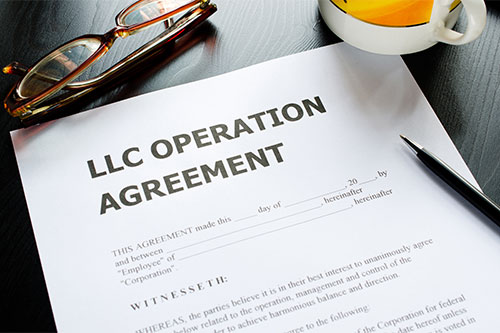IRS LLC Filing Done Right Saves You Money
When you think of IRS LLC filing, know that you are also involving your state government as well. The IRS says: “A Limited Liability Company (LLC) is a business structure allowed by state statute. Each state may use different regulations, you should check with your state if you are interested in starting a Limited Liability Company.” So, get that out of the way first. Now for more from the IRSi.
- Members – LLC owners are called members. Members do not have to be individuals. Most states allow LLCs to have individuals, corporations, or other LLCs as member entities. There is no limit to the number of members, and many states allow single member LLCs as well.
- Classifications – Depending on the number of members and elections made by the LLC, the IRS will treat the LLC as one of these:
- Partnership
- Corporation
- “Disregarded Entity” – a part of the LLC owner’s tax return. This is a single member LLC that will be disregarded as a separate entity from the owner.
- The IRS will consider a domestic LLC with at least two members to be a partnership unless the LLC files the IRS Form 8832 and specifically elects to be treated as a corporation.
- Election Effective Date – LLCs that do not want to accept the default IRS election can file Form 8832, Entity Classification Election. There are limitations as to the effective date. The IRS says: “Generally, an election specifying an LLC’s classification cannot take effect more than 75 days prior to the date the election is filed, nor can it take effect later than 12 months after the date the election is filed.”
Those are an overview of the setup of the Limited Liability Company. As with any decision so important to the success of a business, consulting with financial professionals should be a first step.
The Single Member LLC
As a disregarded entity, the single member LLC does its federal tax reporting on the individual owner’s tax returns and using the social security number (SSN) of the owner. The common forms used in reporting for taxes include:
- Form 1040 1040-SR Schedule C: Profit or Loss from Business (Same as Sole Proprietorship).
- Form 1040 1040-SR Schedule E: Supplemental Income or Loss
- Form 1040 1040-SR Schedule F: Profit or Loss from Farming
The entity is treated for tax purposes the same as a sole proprietorship. The selection of the LLC as the company entity would be for other reasons such as liability for the owner.
Partnership or Corporation
As stated above, the IRS will normally classify the LLC with two or more members as a Partnership for tax purposes. Tax reporting and filing will be with Form 1065, U.S. Return of Partnership Income.
Should the owners elect to be classified as a corporation at inception, the LLC will be subject to the normal tax rules for a corporation and file returns on Form 1120, U.S. Corporate Income Tax Return. This is for the normal C Corporation. If the S-Corporation is selected, the Form 1120-S, U.S. Income Tax Return for an S Corporation will be used.
This overview is intended to give you enough information to have a discussion with a tax expert to dig into the details for a final IRS LLC filing decision.
i Limited Liability Company – IRS.gov

